Shifting the Leadership Paradigm
the Berkshire Leadership Summit and Beyond
A direct response to the report presented at the Women’s Leadership Conference in San Francisco at American Conservatory Theater (ACT) in August 2016, the inaugural two-day Berkshire Leadership Summit (BLS) in October 2017 brought together around a hundred participants from across the United States and Canada who either aspire to or already hold positions of leadership in theatre. Beginning with the application questions, throughout the weekend, and still months later, my own BLS experience was simultaneously exhilarating, challenging, heartening, frustrating, galvanizing…but mostly thought provoking. You can find the keynote and plenary sessions archived on HowlRound TV to see for yourself.
How did the BLS happen? I spoke with the BLS Steering Committee—Akiba Abaka, Rachel Fink, Kristen van Ginhoven, and Shafer Mazow—who shared what lit the fire and kept it burning during the planning, and what they learned along the way.
Sara Brookner: Tell me about how the idea for the Berkshire Leadership Summit sparked and how you came together as the steering committee.
Kristen van Ginhoven: We met when we attended the Women's Leadership Conference in August of 2016 at ACT. I don't think any of us knew each other at all prior to coming together. During the opening panel session of that conference, the results were shared from the Wellesley Centers for Women report on women's leadership in resident theatres. Shafer was instrumental in that study coming together. The panel of researchers, artists, and conference hosts discussed the issues that were identified in the study as barriers for women in leadership.
I was moved to stand up at the microphone and make this commitment that my company, WAM Theatre, would host a summit as a next step of action. Then over the course of that day, these three other courageous people came up to me and said, "I would like to be involved." After the summit I reached out to them all and everybody naively said, "Yes, let's do it." And so began the journey.
‘Helping to bring people together around the topic was a way of pushing back. It was a way to take time to focus and get organized around how women in this field could support each other and expand opportunities for ourselves.’—Akiba Abaka.
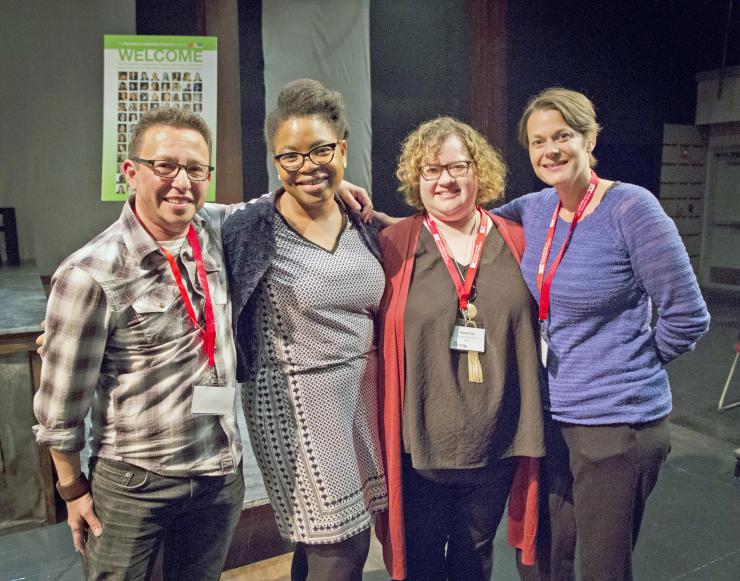
Sara: Why were you each so moved to get involved with Kristen and this idea?
Akiba Abaka: It was the next thing that made sense. The report showed that no matter how much training or experience women had, there was a significant disparity in the opportunities for advancement to executive leadership in the field. When you see things like that you wonder what can be done about it. So when Kristen stood up at the mic and offered to put together a summit to drill down on the subject areas articulated in the report, I was very impressed and I took her very seriously and I told her I wanted to help. Helping to bring people together around the topic was a way of pushing back. It was a way to take time to focus and get organized around how women in this field could support each other and expand opportunities for ourselves.
Shafer Mazow: I was part of the development and execution of the study with Wellesley. I was incredibly impressed with and proud of what it had accomplished, but I also understood that the focus was one lens, and we wanted to broaden it to include more dynamic and real understandings of the experience of gender. That was one of my motivations to keep going and to stay a part of the Women's Leadership Project.
When I started it I was Stephanie, and then I became Shafer, and that understanding of the complexities of gender and of intersectionality was important to me. I felt it was my charge to offer a lens that would allow for that kind of expanded understanding to happen within this movement.
In the early days of the work with ACT and Wellesley, there was a sense that diversity conversations should focus on other dynamics like race first, that gender could wait. But I was committed to making sure that gender was part of the conversation and not separate from it. And while there were many valid points about skills building, I firmly believe that more than anything a paradigm shift is necessary. It may be a perception of lack of skills, but it is not because women don't know how to do power point presentations that they're not leaders of major theatres. There's a paradigm shift that needs to happen that embraces diversity, intersectionality, the complexities of all kinds of identity points. There needs to be a new leadership model. I was and am committed to that.
Rachel Fink: When I read the study, I felt like I was reading my career frustrations from the past ten years on paper. I was tired of having to go through the interview process over and over, and seeing other people progress and not being able to move forward. I saw it also happening to my peers, and saw patterns. I wanted to find a way to directly address that and be proactive.
I get very frustrated when we sit around and talk but don’t do anything. I wanted to change this dynamic and elevate the conversation with a group of peers. Also, to look at what type of collective action we could bring to the field, particularly with the knowledge of people who had been through these interview processes. When you're going through an interview you don't tell many people. There are a lot of quiet stories about people who have tried to move forward and not been able to. I didn't care about being quiet about that anymore.
‘There was a sense that diversity conversations should focus on other dynamics like race first, that gender could wait. But I was committed to making sure that gender was part of the conversation and not separate from it.’—Shafer Mazow.
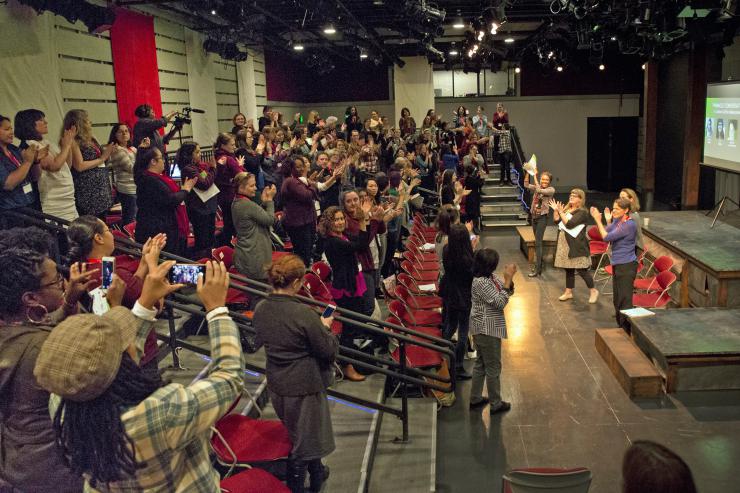
Sara: That's awesome, and we're so grateful you didn't care. When you four kicked off the summit, in your opening remarks you mentioned how each of you wanted different things, whether that was an approach or an outcome, from the summit. What did you each envision, and how did you navigate those competing desires to reach what it ultimately became?
Akiba: We didn’t have any competing desires. The differences we encountered had to do with the dynamic nature of this charge. As we tried to put the summit together there were questions. Questions around male allies, gender fluidity, race, age—the questions all had to do with the day-to-day experiences that we and the women we queried encountered in the field. It was essential that the summit addressed those questions.
The executive report presented a set of assumptions as to the skill sets of women in field. We looked at those assumptions, and we threw some questions against them. We wanted to know, where does gender fluidity enter the conversation? Or racial discrimination? Or geography? Or age? Because we were throwing a lot of questions at the ideas that were articulating our glass ceilings, the differences started to arrive.
Though it was at times challenging to explore so intimately the questions and topics that the research brought forth, every step of the way the four of us had the same agenda: to make sure that we produced a solid event that would create a space for women to talk with each other about how to change the status quo.
Shafer: I think just as in everything, we all brought our own perspectives to it, and so we had different experiences which informed what we wanted to accomplish or believed was possible. I particularly wanted to make sure that we had left an avenue open to expand everyone's individual experiences in these movements. There isn’t one experience of womanhood, and there's certainly not an easily defined structural gender matrix. I wanted to allow for that complexity to be a part of this conversation. I firmly believe we start with women's leadership and we talk about women and girls, but we keep an open mind that will allow for what our world actually is.
Kristen: The guidepost words for me were “thoughtful and intentional.” We really did our best and we tried to be as thoughtful as we could, given our time limitations. When we were trying to phrase who could apply, we came up with, "People who navigate the field as women.” At the time I thought, That's great, that's not going to be a problem. Then I realized my assumptions around that, because Shafer said, “Well, I navigate the world as a woman. I was Stephanie for thirty-something years and that doesn't change because now I'm Shafer. Does that mean I can apply to the summit?” Personally, the whole summit experience opened up my worldview and challenged my assumptions in ways I could never have predicted at the beginning, which ultimately make me a better person and leader going forward. Those were unexpected benefits.
We wanted to redefine the leadership model and path. We wanted people in the room who take the "traditional path," through LORT theatres, and TCG Conferences, and who know each other from that world. We also wanted the people outside of that world, who are creating and building incredible theatre all over, who aren’t in the LORT system. People outside of that traditional place, who don't have those networks to be headhunted, but who are perfect to be called on to fill these leadership positions becoming available in the theatre. We wanted to make sure it was a mix. That was made clear to us in responses from a survey we did last February around how to focus the summit and who should participate. We eventually created a rubric that covered region, race, sexuality, geographic location, age, level of experience in the field, and years of leadership. And that's why we brought certain people as facilitators and to run workshops.
‘We wanted to redefine the leadership model and path.’—Kristen van Ginhoven.
Sara: How long did you spend planning the summit and grappling with these questions?
Kristen: Less than eight months.
Sara: That's really impressive that you managed to pull that off in less than a year. Can you each tell me about either your favorite, most memorable, or most surprising moment from the weekend? I have several I could pick from. It was the first time I had been in a conference or networking environment where it didn't feel fake in any way. It felt very genuine; there was a lot of warmth. You sent out a notice beforehand about it being a brave space, and every aspect was infused with that notion, whether it was waiting to get coffee in the morning or during a workshop or plenary session. There was this incredible immediate camaraderie that I've never experienced.
Shafer: My most profound moment happened before the conference, when I went to Wellesley and I was thinking about what I wanted to say in my part of the opening remarks. And it became clear to me that I want us to create spaces for possibilities we can't imagine, just as Wellesley did for me. The revelation was transformative—that it was done for me, and that's what I want to do for others. All the work we did to get to the summit allowed me to have that epiphany. That has changed my world ever since. I want brave spaces in this world; I'm trying to create and support them. They are incredibly hard to make, especially given the culture we're used to. At the summit, people really responded to trying to change the way we relate to each other, which has to do with changing the leadership model.
Rachel: I don't have a quintessential moment. Part of it is the fact that we were able to do this. That four people from across the country who had big ideas and intentions, put them out into the world. We were able to get support from a variety of different sources and levels, and gather together a group of people with a framework, let it go, and see what happened. They were open and knew that it was an experiment, and that it was step one. We definitely wanted to have a wonderful, incredible, meaningful experience, but a lot of it was about process, which I think is different than many committee meetings that I've participated in. We all learned collectively. Turning off the sensor in your head and seeing what are real as opposed to perceived roadblocks is a really important learning, as you’re going through leadership. Of course, that leadership takes on many different types and styles and for many different people. Allowing space for that to happen is so important.
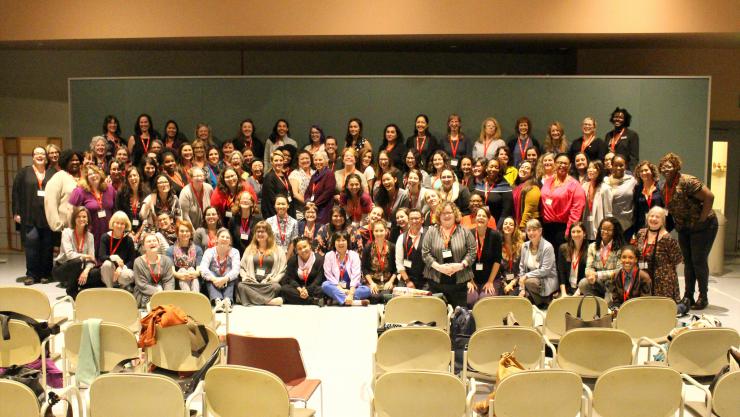
Kristen: I loved seeing the hallway filled with a hundred of our welcome bags that had been filled by WAM volunteers and our amazing producer, Julia Dixon. I thought, Well not only are these the best welcome bags that anybody's ever gotten for a conference, people got such incredible value for the money they paid. We were so conscious of the effort and time that people had put into coming, we wanted them to leave thinking it had been worth every penny and every second of their time. And then I was so proud of the diversity in the room. Of course, there’s always more that one can do. I loved seeing the steering committee; we all stepped into our different strengths.
Akiba: The most remarkable moment for me happened in the final few weeks of planning the summit. It was a revealing moment that required me to show up as a person as much as a producer. It drove home the fact that if you're not being true to yourself when you are in the “arena of life,” as Brene Brown puts it, you are not going to make change happen. I was not allowing my feelings and my own fragility to be considered and in so doing, I wasn’t bringing my whole self to the conversation. It was this sense of, “I’m doing this for all people who identify and navigate the field as women. It doesn't matter if I benefit from this. It doesn't matter if my feelings are hurt, or if I’m not feeling fully considered or understood. I’ve got to turn off my feelings.” Many women have been told this. As an African American woman, you're told going into the world that you must not be vulnerable or fragile. You must be ten times as good as the best white person in the room. We can't even think about crying. There came a point where I realized it was impacting the "me" I really knew myself to be and how I work.
I started talking to my colleagues on the steering committee. They each listened in different ways and the dialogue became tough. But we all stopped to listen to each other and where we were being untrue to ourselves. That changed my life, completely. Shrinking is lying. Not taking up space, it's not telling the truth.
I learned a lot about this from Shafer when he pointed out that for many transgender men, on the outside they have changed, but they don't take up as much space with their voice. Some transgender women are more comfortable taking up space with their voice, perhaps because they have transferred a sense of agency from having at some point been perceived as male. I think the biggest take-away from all of this is that there are so many things you can learn when you speak up for yourself. So much that you can learn about what you have in common with others.
Shafer: The impact this conversation had on me has been phenomenal…being able to include the full life experience of what it is to be raised as a girl. We talked about male born privilege and how that complexifies the spectrum of experience of what it is to be, or be seen as, a woman. I had some concerns that there were others—not the organizing committee, but in the theatre community—that did not feel it was appropriate for people like me to be there.
Akiba: Along the way, a question arose: who gets to be fragile in this movement? The summit was successful because when we needed each other, we made space to really listen to each other. When it came time where we needed that space, it was organic. It was memorable because there was so much truth. We were not putting on a show. That's what you probably felt.
Sara: Yeah, I was about to say that. I responded to that feeling.
Shafer: We had one moment when we looked at the Brave Spaces framework for our interaction together in a very profound way. To provide that environment for the summit, we had to invest and be willing to go through that intense process ourselves. I felt that throughout the whole summit experience. What Akiba's saying is we were there for each other but it was hard because it is not the world we come from. I want to change the leadership model. I believe that we all do, so that we're not just changing who's in the top positions, we're changing the structure and the system; and we're changing what it means to be a leader. A leader can be compassionate and collaborative.
Rachel: I feel like we are at a precipice in terms of these leadership dynamics and structures. We are very slowly seeing change in terms of who can potentially lead all organizations, and also what they're bringing to the table. It's aligned also with generational shift, and there are different definitions and approaches of what it means to be in collaboration or consensus in leadership. We are at a point where either things can be really exciting moving forward, or we're going to go back and have a lot of people leave the field. It is a critical moment right now through maybe the next five to ten years. It is going to pave the way for these organizations, but more so the field as we move forward.
Kristen: Connected to all of that, I think what Akiba and Shafer were referring to was the turning point in making the summit a success. We were all able to get out of our own way and focus on the goal. I remember feeling the whole weekend both incredibly optimistic and depressed. A little mantra in my head was, “If somebody as unbelievable and incredible as Hana Sharif does not get hired for one of the leadership jobs in the next year, then none of us have any hope.” All of us in the room were so moved by this woman, her story, her skills, and her passion.
Shafer: It comes back to a point that Akiba made in the beginning. At the original Women's Leadership Project convening in San Francisco, I had another revelation, which is why I insist on paradigm shift being important. There were a lot of discussions about starting over, "Well, let's just start some theatre companies and redo the rules." But I realized, "Wait a minute, we already did that. The regional theatre movement was founded by women, but because of the way society has been structured, it was taken over." We can't just keep starting over. We have to change the paradigm. We can build a new system, we can build a new world, or a scenario that promotes the values that we want. But unless we change the rest of the world as well, it's not going to permeate.
Akiba: Another remarkable moment—the elders. I'm talking about their power and magnitude and the impact they've made in the field. People like Martha Richards, Ellen Richard, Liz Diamond, Debbie Chinn, Michelle Hensley. These extremely accomplished women weren't walking around like they were the queens of the field, doling out their sensibilities. No, they were gathering with everyone receiving as much as they were giving, convening, conferencing, and being edified, just like the twenty-one-year old, entry-level genius who believes she's about to revolutionize the American theatre.
‘Going through the summit really impacted my confidence... It helped me trust myself and be grounded.’—Rachel Fink
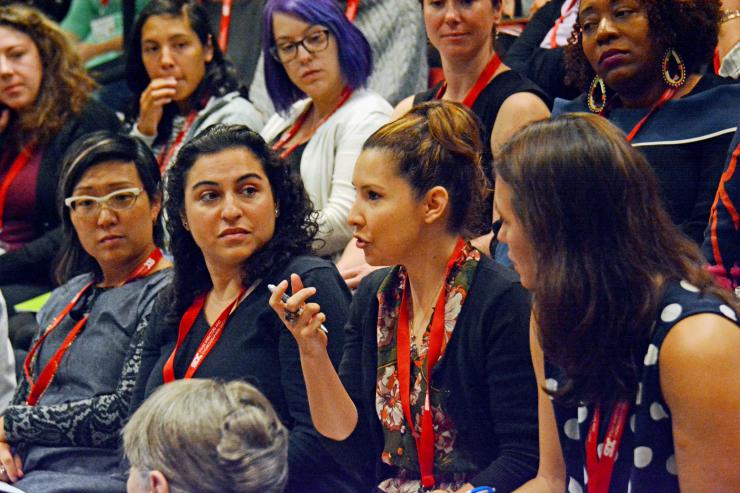
Rachel: So giving and so generous. And they have continued to be since the summit. They are so committed and certainly are very busy, but they are continuing to give and support, and will continue to do so.
Sara: I felt like there was a very genuine spirit of generosity at the summit that has extended since it ended. Have you seen any exciting changes?
Kristen: Oh, so much! Rachel got this kick ass job and Shafer got a kick ass job, and Akiba got a directing job.
Rachel: Marcela Lorca at Ten Thousand Things.
Kristen: Obviously those are not from the summit, but it feels like we are a part of a sea change.
Shafer: My specific situation did partially arise because of this summit. I'd been offered the position of Managing Director of Z Space. I originally thought, "I can't do this. I don't know how to do this." My mentor Ellen Richard said, “Of course you do, and you have people out there who will support you; you have a network.” Then I thought, “If I'm going to do all of this work and try to change what leadership looks like in American theatre, I have to take a leadership position.” My anxieties, my female born-ness, and whatever it is that tells me I'm not good enough to do it, made me want to say, "No, I don't need to be a leader, that’s for other people.” But the summit, and the desire to change what leadership looks like, had a lot to do with why I chose the job.
Rachel: I feel similarly. Going through the summit really impacted my confidence and informed how I dealt with the interview process for my new position as the Executive Director at Lookingglass Theatre. It helped me trust myself and be grounded, and know that I can do the job even though there are parts of it that I have never specifically done before. It helped me approach things in a different way.
Akiba: The opportunity that I received to direct at Northern Stage came directly from the summit. Carol Dunne who is the Producing Artistic Director of Northern Stage, and Amanda Rafuse, the Associate Director, received a grant from the Pussycat Foundation. Carol used the money to create a fund to help develop women artistic directors. They both attended the summit, and I had been talking with them afterward, and then Amanda invited me to direct a piece by a young woman in their New Works Festival. In one of the plenaries, someone said how as women directors who have administrative roles—which I do—are not given the opportunity to do the artistic work. Carol and Amanda giving me the opportunity to do the work as an artist, it builds esteem.
Kristen: Hopefully there are many connections and opportunities and confidence-building things that came out of it. Everyone else’s successes are our own success. That's the real change in the energy that goes behind this movement—that feeling of being on the same team and getting people on the field.
Sara: What do you think are the next steps, then?
Rachel: Personally, I really hope that people take the spark of the summit and put it into their own projects and whatever they feel is meaningful. A group of people from across the country, with lots of different interests and experiences, came together and hopefully left energized and with an intent moving forward. It’s more viral and about movement-building and collective work, than about a specific step.
Akiba: This summit taught all four of us that leadership is making a way for others so that they can be their best.
Kristen: I thought along the way I was nuts for having had the instinct to do it. I guess that's another part of leadership—balancing that gut instinct with the thoughtful decision-making.
Akiba: But sticking with it when it gets tough. You have to deliver.
Kristen: Yeah, persist.
Akiba: Yes, you must persist.

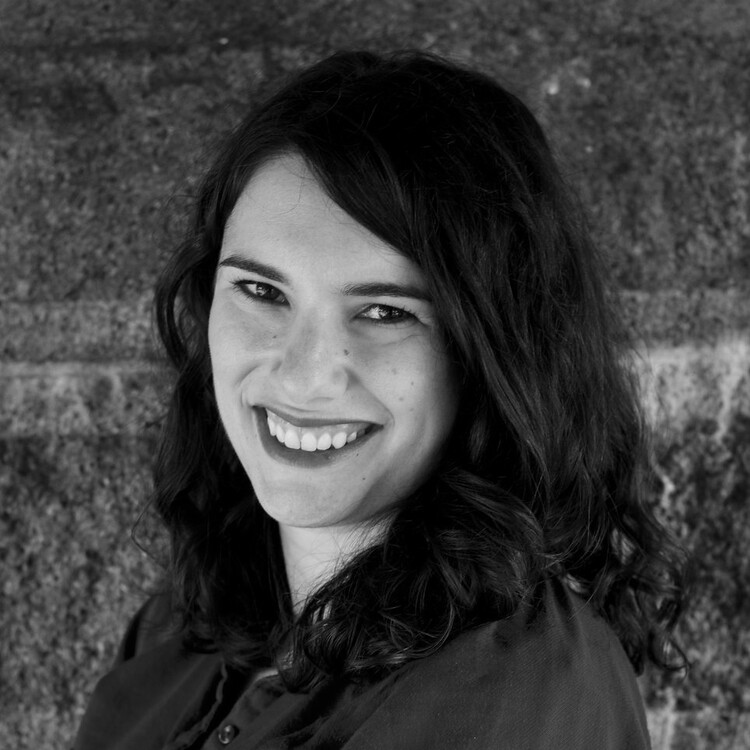
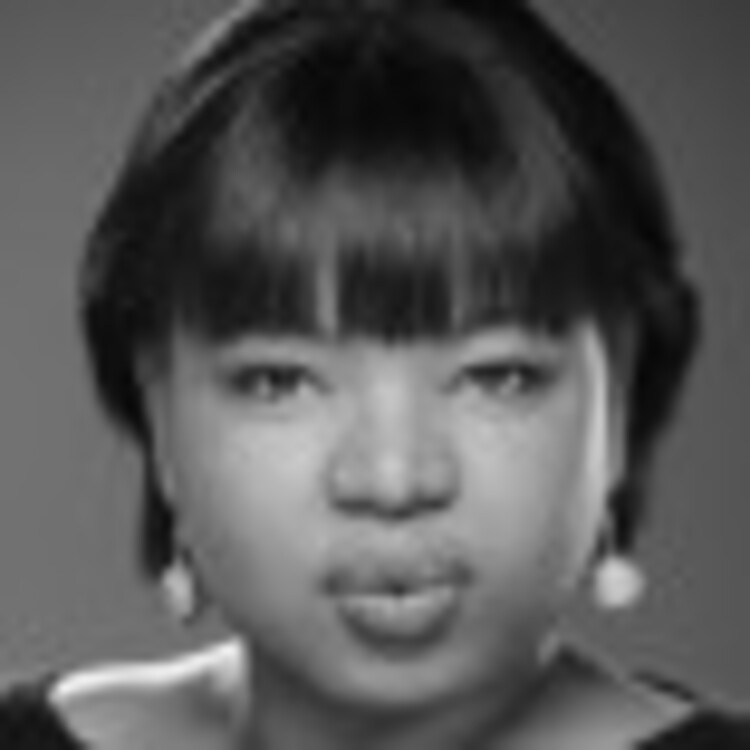
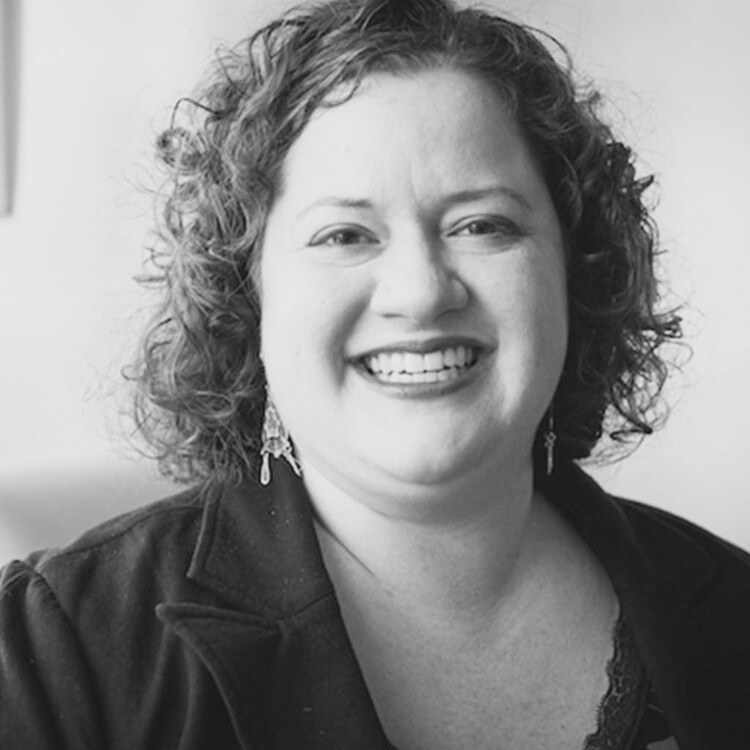
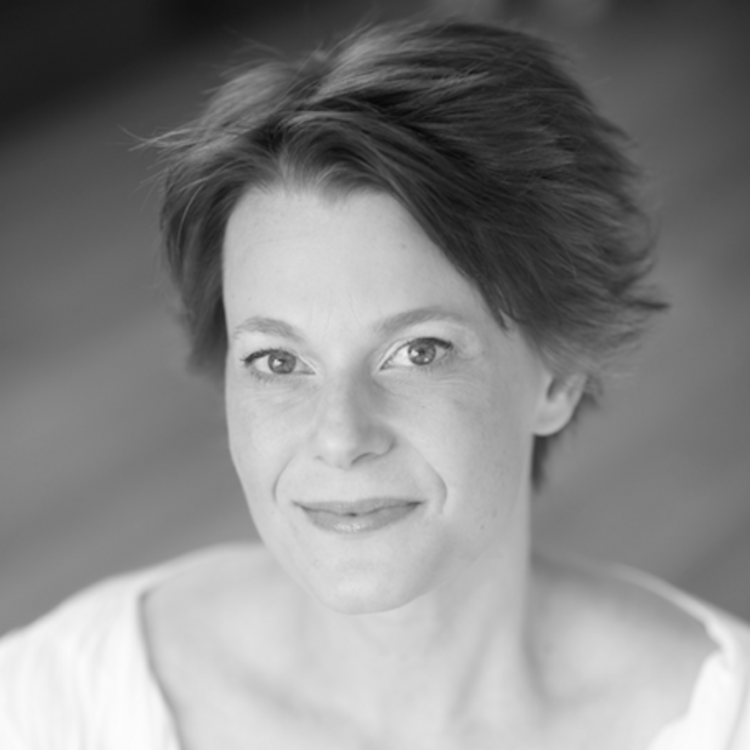
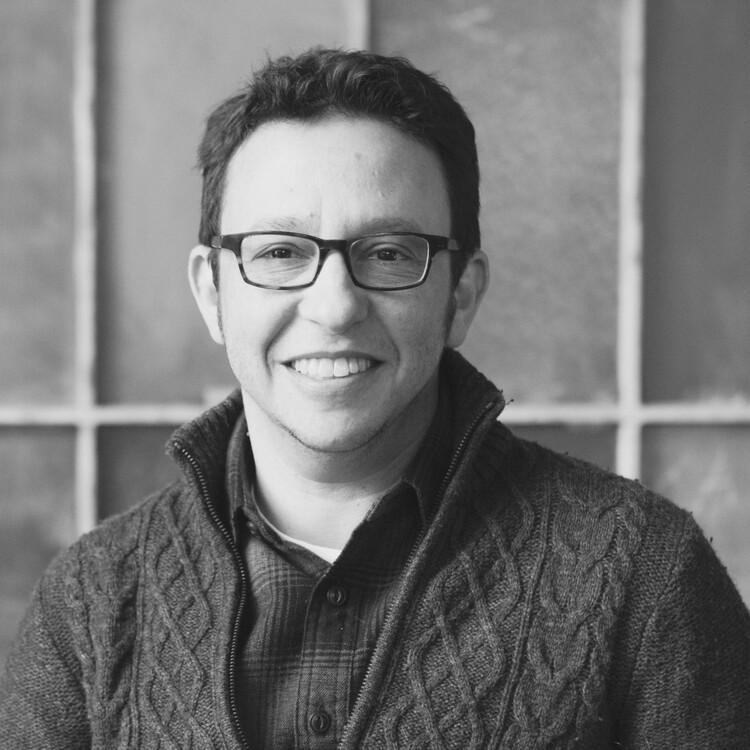
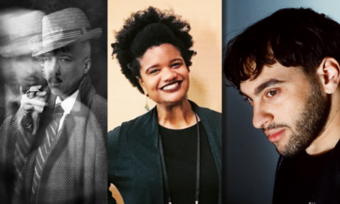



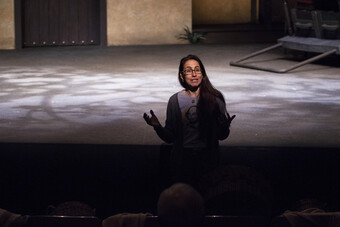


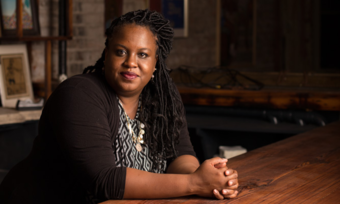


Comments
The article is just the start of the conversation—we want to know what you think about this subject, too! HowlRound is a space for knowledge-sharing, and we welcome spirited, thoughtful, and on-topic dialogue. Find our full comments policy here